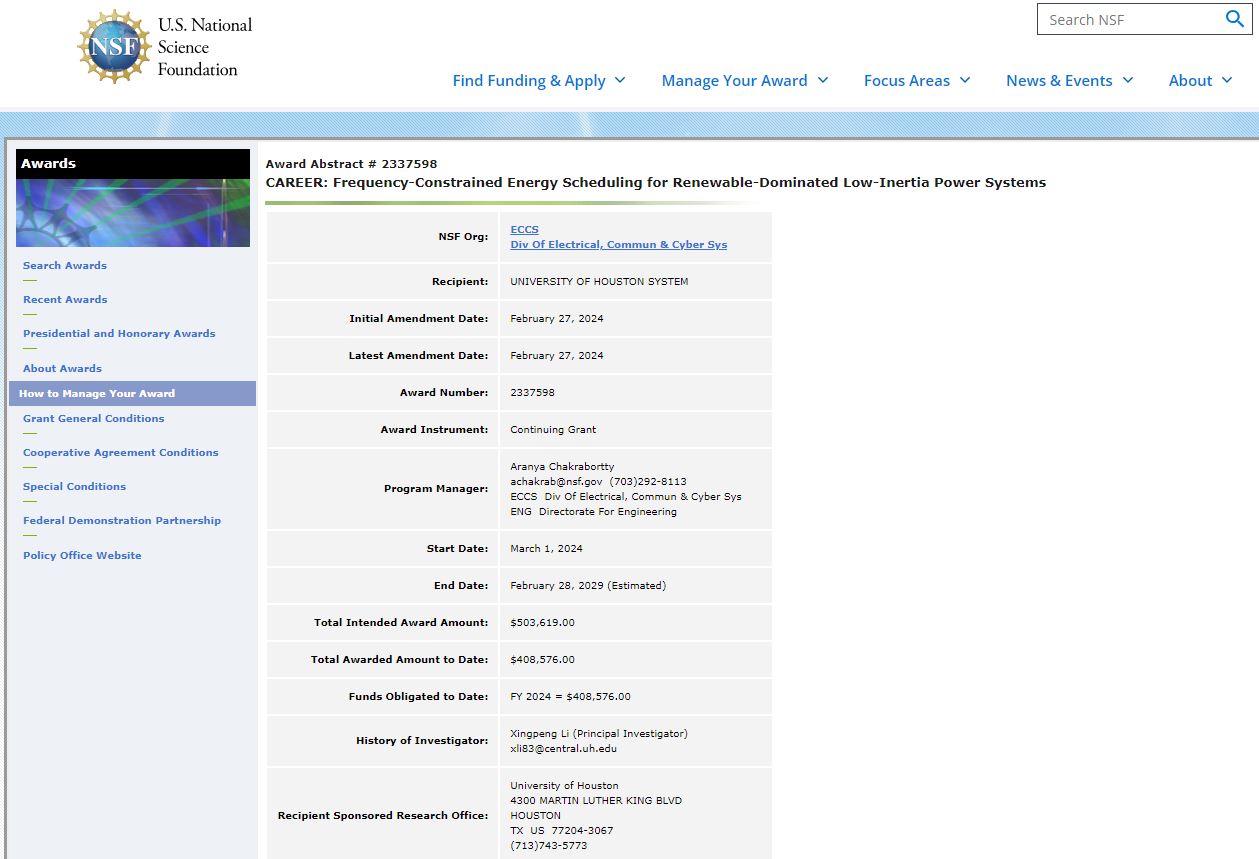-
Congratulations to Xingpeng Li for receiving the prestigious NSF CAREER Award, from the National Science Foundation (NSF). NSF CAREER Award is a major milestone and achievement for Early-Career Faculties.
-
Project Title: “CAREER: Frequency-Constrained Energy Scheduling for Renewable-Dominated Low-Inertia Power Systems”
-
The total amount of NSF fund is $503,619, supporting our relevant research activities.
-
The estimated Period of Performance is: 5 years or 60 months.
Figure 1. Snapshot of the official Award Release on NSF website:
Public Abstract of this NSF CAREER Award:
This NSF CAREER project aims to ensure the reliability and stability of future low-inertia power systems with high penetration of renewable generation resources such as wind and solar power. Although the fast growth of renewable energy could significantly decarbonize the power grid, it will lead to the low-inertia issue that substantially impacts the grid frequency stability. Addressing this low-inertia challenge is crucial for grid operations. The project will bring transformative change in enhancing power system frequency stability while ensuring sufficient power capacities to meet the electrical demand. This will be achieved by leveraging advanced machine learning technologies to accurately predict critical frequency stability metrics, which will be integrated into the day-ahead energy scheduling model. The intellectual merits of the project include developing a novel frequency-constrained energy scheduling model, and using machine learning to reduce model complexity and enhance computational efficiency. The broader impacts of the project include promoting the grid integration of clean energy, developing open-source curriculum, and encouraging the engagement of female, underrepresented and minority students in research and educational activities.
In most practical power systems, traditional synchronous generators are gradually being replaced by inverter-based resources such as wind and solar power. This transition will introduce the low-inertia challenge to grid operation and stability. However, traditional day-ahead unit commitment models cannot effectively consider the impact of this emerging challenge. To bridge the gap, this project will develop an innovative frequency-constrained unit commitment (FCUC) model by leveraging optimization methods and machine learning technologies especially graph neural networks. This project will first develop a frequency stability performance metric estimation model and then integrate it into FCUC as additional constraints to enforce frequency stability requirements. Moreover, this project will develop machine learning-assisted approaches to reduce the model complexity of FCUC by converting a subset of variables into constants and eliminating unnecessary nonbinding constraints. Lastly, this project will develop machine learning-assisted accelerated decomposition algorithms to further enhance computational efficiency and ensure quality solutions can be obtained within the specified timeframe.
